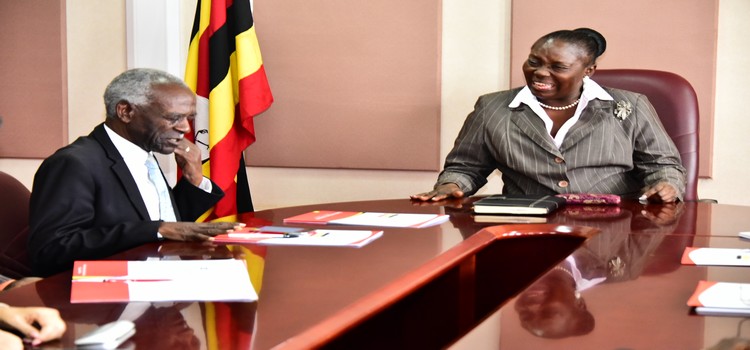
The Speaker of Parliament, Rebecca Kadaga has welcomed t plans to hold a national dialogue saying that it is timely. The Inter-Religious Council will launch the National Dialogue process on 21 November 2018.
Kadaga who was meeting the Inter religious Council leadership in Parliament on 01 November2018 said that the intervention is long overdue.
“You can sense the anger of the people to speak and be heard. When you listen to radio programs, people have ideas but is anyone picking them up, is anyone taking action? I think this is a good opportunity for them,” Kadaga said.
She cited the proposal of addressing the issue of land evictions as important.
“There is an epidemic of evictions in the country; it has become a nightmare,” said Kadaga.
Responding to a request by the Inter-religious Council to Members of Parliament to contribute finances towards the dialogue process, Kadaga said she would ensure that a motion is introduced in Parliament.
“We shall take a resolution on this once we return from recess,” said Kadaga.
According to the Co-Chair of The Elders Forum and the Eminent Person’s Group, Justice James Ogoola, the National Dialogue seeks to bring Ugandans to discuss and build consensus on the Uganda they want.
“The process will mobilize citizens to think together as a nation beyond partisan interests,” said Ogoola.
He added that the process aims at protecting and consolidating peace, stability, democracy and development attained in the last 30 years.
“In the absence of a sustainable mechanism for conflict transformation, the prevailing challenges of economic development, historical and current injustices, contested and violent electoral processes, land evictions and human rights abuses among others are likely to remain,” said Ogoola.
He said consultations were carried out all over the country in the last two years and the people agreed to the process because it offered them a rare opportunity to participate in matters that directly impact on their lives.
The National Dialogue is expected to address issues in thematic areas which include; a national consensus on values, diversity, the economy and access to land and natural resources.
Others areas include service delivery and responsibility for ensuring effective service delivery beyond blaming government as well as political commitment and on constitutionalism and rule of law.
